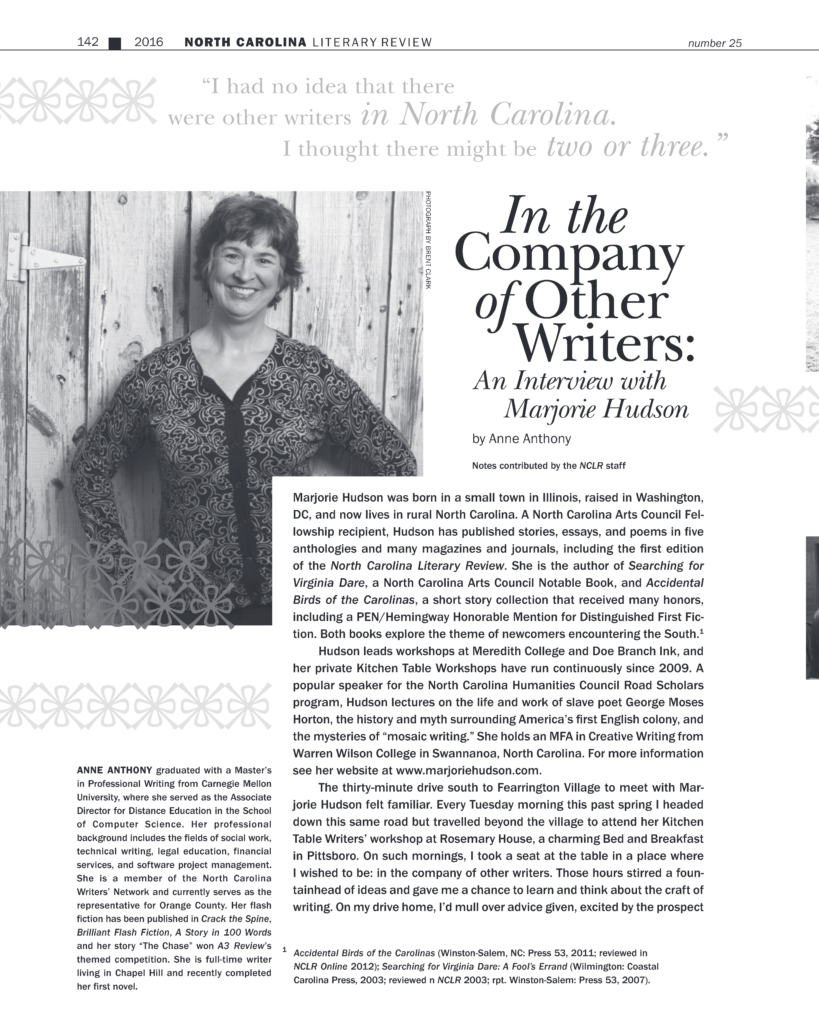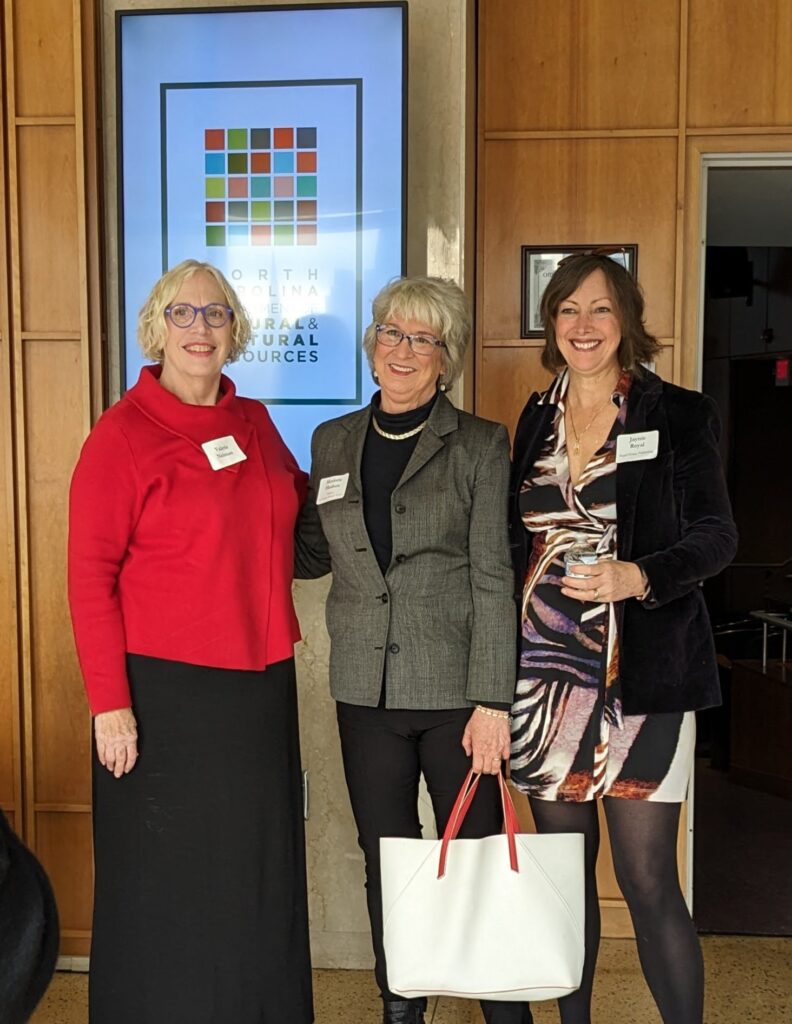Friday from the Archives: “In the Company of Other Writers: An Interview with Marjorie Hudson” by Anne Anthony from NCLR 25 (2016)
One of our favorite parts of our mission of “preserving and promoting North Carolina’s rich literary culture” is getting to not only witness but be a part of a writer’s journey from the beginning. We are of course thrilled by Marjorie Hudson’s recognition with the 2023 Sir Walter Raleigh Award for Fiction for her debut novel Indigo Field. We love that her work published originally in NCLR (1992, 2002) has been helpful in her long-form literature.
Hudson perhaps epitomizes the generous sharing of time, talents, and energy our writers give to each other. As she recounts in her interview from 2016, she started supporting the local–and eventually the entire state and beyond–writing community as soon as she moved into Chatham County. She remarked, “Writers in my area, who I did not know, were busy getting together and creating community. The North Carolina Writers’ Network was formed in 1985. I started to get affirmation from people in the community. The first poem I sent out was published, and then it won an award. The publisher was Ralph Earle who ran a small arts paper in Sanford, North Carolina. He and Barbara Braveboy Lowry became my first writing group and were incredibly encouraging. I connected with the North Carolina Writers’ Network around 1987. One day I was talking with Marsha Warren who was the Network’s director then, and she suggested that I get together with Nancy Peacock. I contacted her, and we formed a writing group. An enormous number of people from Chatham County, fifteen or twenty people, would sit around in a group and read to each other. It was wonderful to hear what people were doing. I wasn’t alone anymore.”
She discusses how she was mentored by her neighbor Doris Betts: “What Doris Betts used to do was write recommendations for fellowships. I was not connected to a university, so for a long time I did not know other writers who could do that for me. She would also send me emails about opportunities for jobs and publication. At one point I sent her a story and she really liked it. It was a published story so I wasn’t asking for her help. I told her I wanted her to know what I’m up to. On the local front, I invited her to be vice-president for the Friends of the Library when I was president. She made great ham biscuits for the Christmas lunch.”
Hudson later shares the story of “Another student, Michele Tracy Berger, attended my early class at the back of the General Store. She shone in every class she attended. She’d been writing on her own for a while and was ready for more. She blossomed in the group, got connected with other writers, started submitting pieces and now has won awards and the interest of a publisher. We’ve become dear friends and even partner in teaching workshops now. There is a wonderful intimacy in groups that foster creativity, and it can make for great friendships. I’ve learned a lot from her as well.” In true full circle fashion, Michele Tracy Berger presented this year’s Lit&Hist awards as the current president of the association.
Emily Wilson, Georgann Eubanks, Lee Smith, and Susan Ketchin are among the other writers Hudson names as helping her along the way. Her workshops and writers groups have continued to enrich not only her own work but that of hundreds of authors, so we are sure that Hudson will be named many times by future NCLR interview subjects and Raleigh Award winners. After all, our culture of community is what makes us the “Writing-est State.”
Read the entire essay by in the 2016 issue on ProQuest and order it for your collection.

